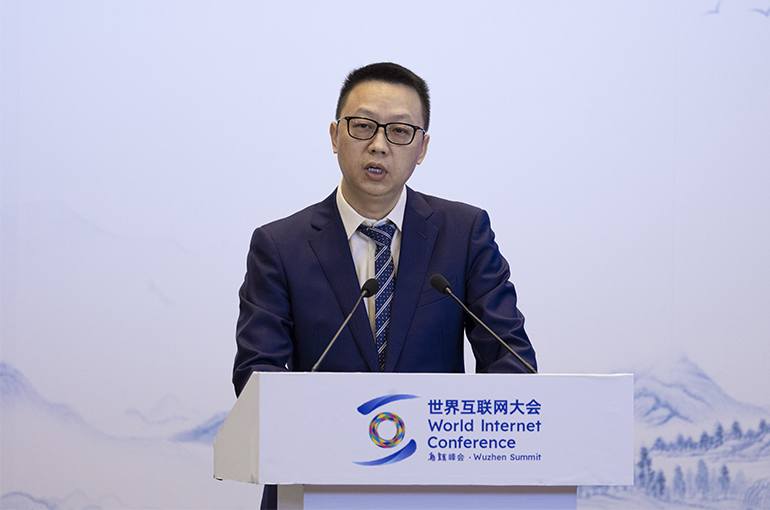 Alibaba CEO, Other Tech Tycoons Debate Future of AI at Internet Conference
Alibaba CEO, Other Tech Tycoons Debate Future of AI at Internet Conference(Yicai) Nov. 21 -- Artificial intelligence has been the hottest topic at the 2024 World Internet Conference Wuzhen Summit in Zhejiang, China, with the tech billionaires in attendance offering their views on its future.
In the past 30 years, the main value of the internet has been to link people, goods, information, and services via platforms, said Eddie Wu, chief executive officer of Chinese e-commerce titan Alibaba Group Holding. In the next 30 years, AI will comprehensively boost global productivity, he noted.
From this perspective, the value spawned by AI is potentially far greater than that created by the internet, Wu pointed out at the summit, which opened yesterday.
The AI-enabled productivity revolution has gathered pace in the past year, and Alibaba has seen almost all of its enterprises reimagine their products with AI, Wu said. In the future, as AI moves from the digital world to the physical world, most things in the physical world will have AI capabilities, he added.
AI “has transformed from a discipline to a key technology that promotes the overall progress of human science and technology,” said Chen Tianshi, founder and CEO of Cambricon Technologies, a developer of AI chips.
Next, it will become a more fundamental part of people’s lives, Chen noted. For example, new drug research and development will be a lot faster, intelligent medical treatment will help doctors with more accurate diagnoses, smart education will provide personalized tutoring for each student, and robots will be developed to take care of the elderly and meet emotional needs, he added.
But some entrepreneurs attending the summit pointed to shortcomings in the current AI use. What governments and businesses need to do now is develop large language models in combination with normal commercial scenarios to raise productivity, Zhou Hongyi, who set up cybersecurity giant 360 Security Technology, pointed out.
At the moment, general-purpose LLMs trained by using publicly available data on the internet seem amazing when they are initially applied, he said, but under careful questioning it becomes clear that they do not know enough about specific businesses.
Zhou concluded that in the future, AI will take two different development routes. One will be to create a powerful and omniscient general LLM such as OpenAI, and the other will be to combine LLMs with specific scenarios to assist industrial progress.
Editors: Dou Shicong, Tom Litting